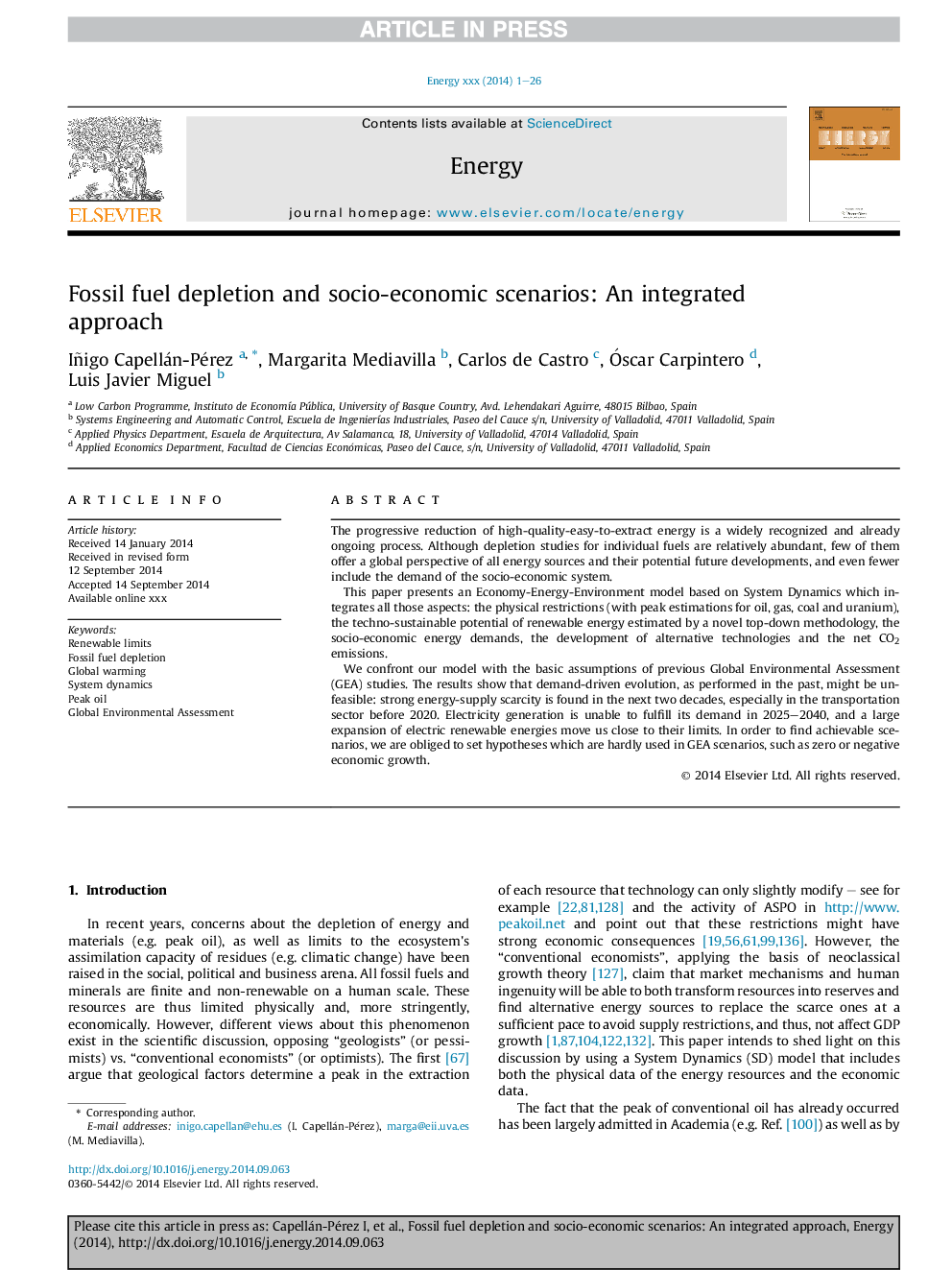| Article ID | Journal | Published Year | Pages | File Type |
|---|---|---|---|---|
| 8076544 | Energy | 2014 | 26 Pages |
Abstract
We confront our model with the basic assumptions of previous Global Environmental Assessment (GEA) studies. The results show that demand-driven evolution, as performed in the past, might be unfeasible: strong energy-supply scarcity is found in the next two decades, especially in the transportation sector before 2020. Electricity generation is unable to fulfill its demand in 2025-2040, and a large expansion of electric renewable energies move us close to their limits. In order to find achievable scenarios, we are obliged to set hypotheses which are hardly used in GEA scenarios, such as zero or negative economic growth.
Related Topics
Physical Sciences and Engineering
Energy
Energy (General)
Authors
Iñigo Capellán-Pérez, Margarita Mediavilla, Carlos de Castro, Ãscar Carpintero, Luis Javier Miguel,
